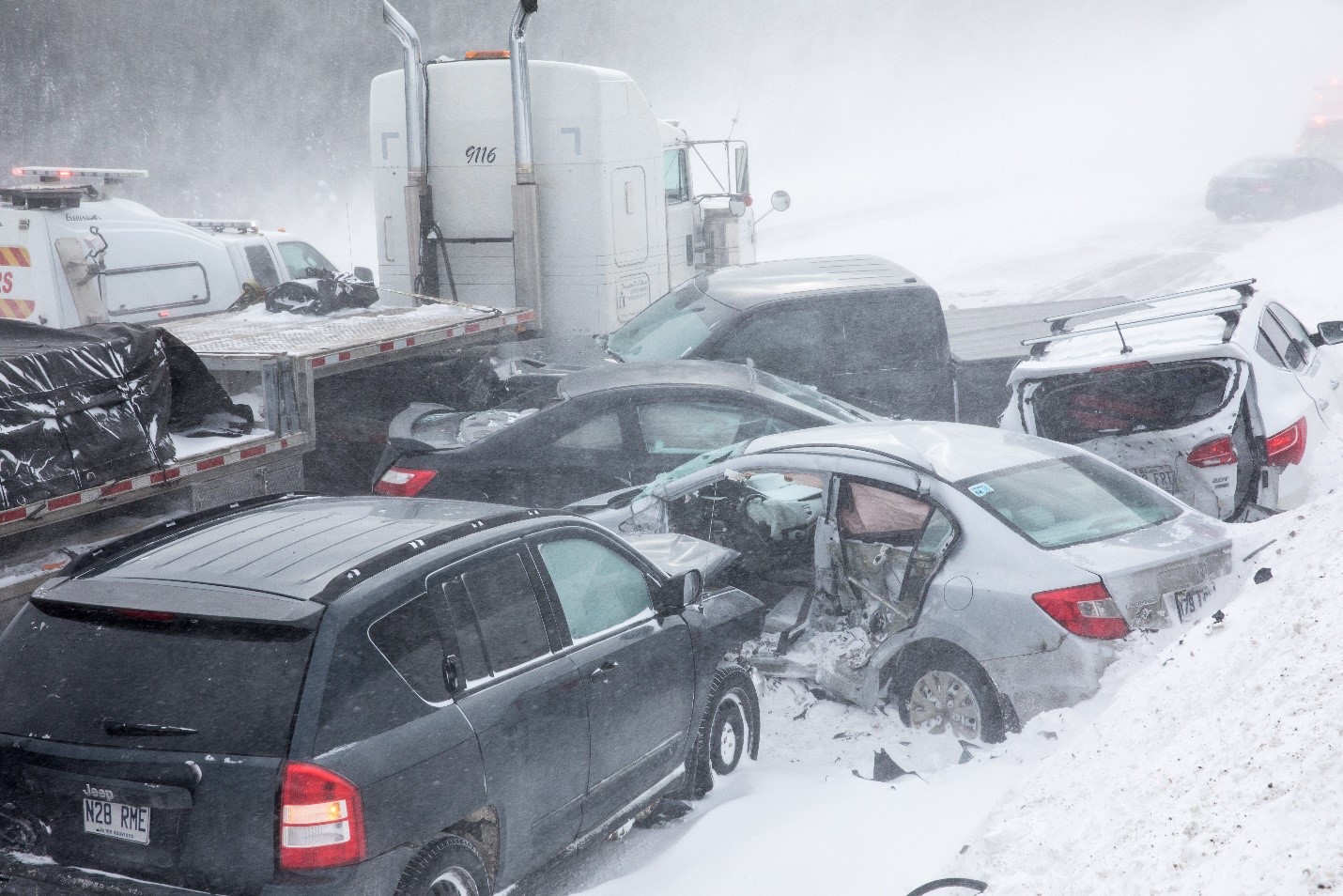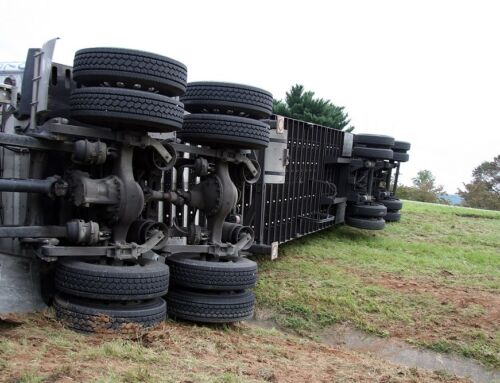With the weather turning cold, and the fall season slowly but surely moving toward winter, drivers must be extra vigilant on the roads to ensure safety while moving along the roadways. This can be particularly true while driving on wet or icy highways surrounded by large semi-trucks. Semi-trucks can present hazards on the road, especially if they are not inspected regularly or driven according to the Indiana Commercial Driver’s License Manual, (Indiana CDLM).
The Indiana CDLM has specific rules and checks to follow before driving in the winter and if one encounters wet or icy roads. These checks and rules can ensure the safety of everyone on the roadways, and reduce dangerous accidents involving semi-trucks. However, if a driver of a semi does not follow these rules or does not ensure that their vehicle is in proper working order, they may be liable if an accident occurs on wet or icy roadways.
Rules for Semis While Driving in the Winter
The Indiana CDLM contains several rules and suggestions in order to make driving a semi safer during the winter. Some of these are very simple, and include carrying the appropriate amount of chains for the tires, ensuring that a semi does not drive through standing water to keep the brakes dry and working, and adjusting to conditions so that a semi can drive carefully concerning speed and turns.
These rules and suggestions are in place to ensure the safety not only of those operating large semi-trucks, but also others on the roadways. If the road conditions are wet or icy, and a semi driver does not give themselves enough time to stop, or turns too suddenly, they could potentially cause an accident and injure another driver or drivers. Therefore, it is important for truck drivers to follow these rules and suggestions. Another important thing truck drivers can do is check their equipment in order to ensure it is in working order.
Checking Equipment During the Winter
The Indiana CDLM discusses several steps that should be taken in order to ensure that equipment on the truck is functioning properly in cold weather. There are many checks that can be done, including checking heaters, checking anti-freeze, and making sure the brakes on the truck are in proper working condition. By taking these steps, a truck driver is making sure that the truck they are driving is safe given the conditions. There will be no freezing problems, and the brakes on the truck are in good condition.
These checks are important to ensure that the truck in question is not in poor condition. However, if these checks are not undertaken by the driver, and an accident occurs, the driver or trucking company could be liable for any personal injury claims that might arise out of the accident.
What Happens if an Accident Occurs in the Winter?
Sometimes, ice and snow are the main cause of the accident, and every step and suggestion was followed by the truck driver. However, in some cases, proper checks have not been done, or a truck driver was not being cautious during the cold weather. In these cases, where personal injury claims arise, a truck driver or trucking company could be liable. This is because semi-trucks have higher risks associated with them, especially during cold and wet weather. It is important for drivers to follow suggestions and regulations, and check to make sure their equipment works properly before going out on the roads in the winter.
What Happens If I’ve Been Involved in an Accident with a Semi?
Injured truck accident victims need an experienced lawyer who has handled a lot of tractor trailer and commercial vehicle accidents. These cases can be hotly contested by extremely skilled defense attorneys who are paid a lot of money by truck insurance companies. Because the damages are usually much greater, the stakes are higher.
At Hurst Limontes LLC, we have over 65 combined years of experience in personal injury accident cases throughout the Indianapolis area. We have experience with the Indiana Commercial Driver’s License Manual as well. Give us a call today to learn more about how we can help you file your claim and be adequately compensated for your incurred damages.





